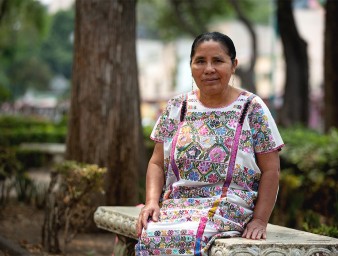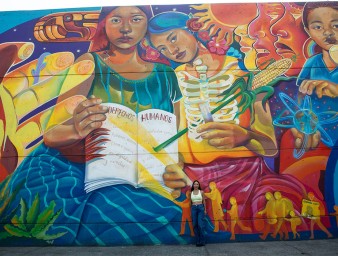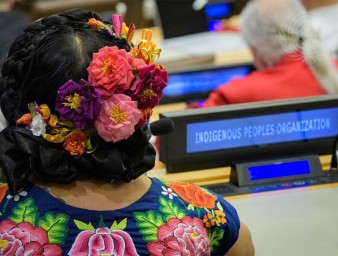Parliaments play a crucial role in women’s equal right to participate
23 June 2023
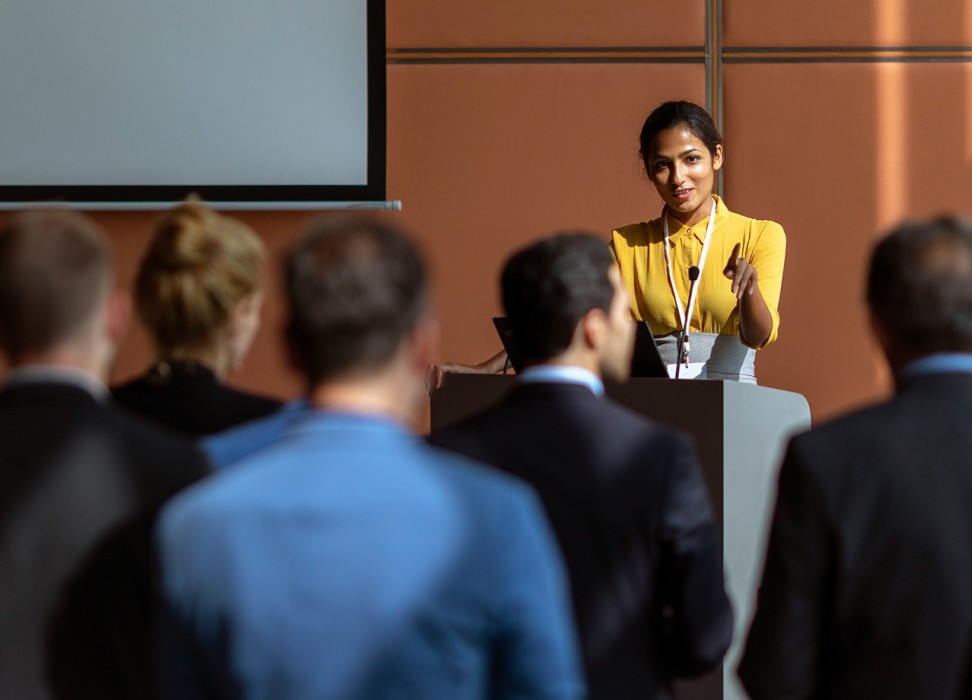
Women of all ages, backgrounds and ideologies across the globe are pushing to be part of the decision-making process, despite the odds stacked against their participation.
“Only 26.5 per cent of parliamentarians are women and in just 36 countries we have a woman head of State or Government”, said UN Human Rights Chief Volker Türk. “The type of hatred and misogyny we see against women in public and political life is mindboggling, and it is extremely important that we are vigilant about it, identify why it is happening and that we try to counter it”.
Türk recently participated in a roundtable event organized by the Office and Inter-Parliamentary Union (IPU) on Parliaments and women’s rights held in Geneva, Switzerland. The event was part of the Human Rights 75 Initiative, which marks the 75th anniversary of the Universal Declaration of Human Rights (UDHR). It brought together parliamentarians from around the world to discuss their role in overcoming barriers faced by women in accessing political participation, decent work and education.
A major outcome of the event was the endorsement by participating parliamentarians of a pledges document. These meaningful and transformative pledges include adopting zero tolerance codes of conduct and reporting mechanisms in parliaments on gender-based violence, ensuring access to decent work and social protection for all women, and ensuring that the education system puts an end to gender stereotyping. Parliamentarians around the globe are encouraged to join and endorse these pledges.
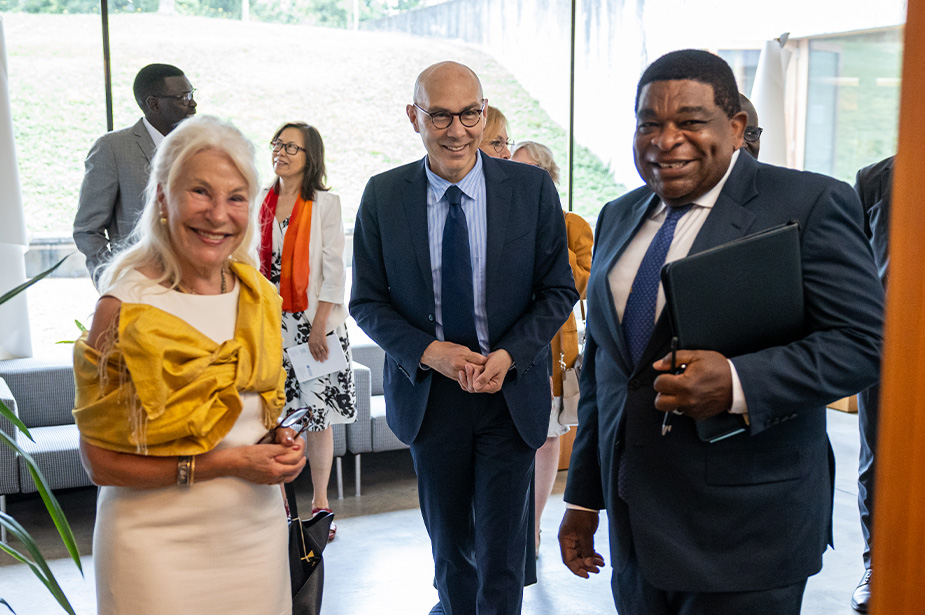
CEDAW member Nicole Ameline (left) and IPU Secretary General Martin Chungong (right) flank High Commissioner Volker Türk at the Roundtable at IPU Headquarters. © Pierre Albouy/OHCHR
The event also saw the launch of a new tool, the 2023 OHCHR-IPU Handbook for Parliamentarians on the Convention on the Elimination of All Forms of Discrimination against Women (CEDAW). The new handbook supports parliamentarians in translating the Convention into concrete parliamentary action through law-making, budget allocation and parliamentary oversight of government actions as well as encouraging parliamentarians to take a leadership role when it comes to promoting women’s rights.
“Parliamentarians are essential drivers of the paradigm shift towards gender parity in all spheres of life,” said Nicole Ameline, CEDAW Committee expert and IPU focal point. “The CEDAW Committee and the IPU have been working closely together to make sure parliaments as institutions and individual MPs can fulfil their transformative role, and advance women’s rights both in laws and in the minds.”
“
Women are 50% of the world’s population and parity cannot wait.
“
Volker Türk, UN High Commissioner for Human Rights
Equal opportunities
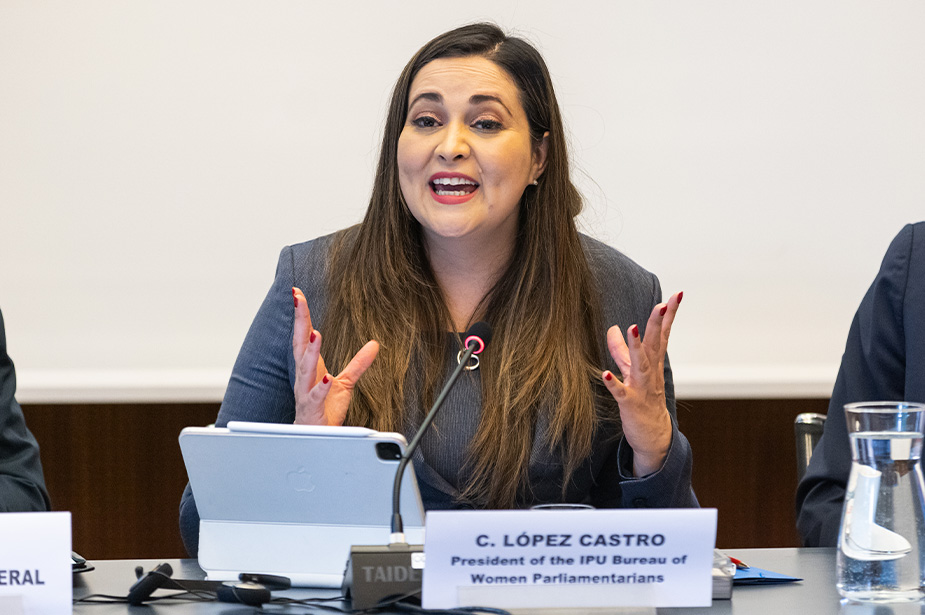
Cynthia López Castro, President of the IPU Bureau of Women Parliamentarians. © Pierre Albouy/OHCHR
At an early age of 16 in Mexico, Cynthia López Castro, moderator of the roundtable and President of the IPU Bureau of Women Parliamentarians, knew she wanted to get into politics even though she didn’t have any connections or family members in politics. She got involved to inspire young people and make a difference as a youth leader in her school and then continued in university.
“I feel very proud that all my career has been just with effort and a lot of work,” she said.
“For me, it was a big passion to serve my country, to serve my community, and I knew deep in my heart, that my mission was to serve others.”
After school she made it her goal to get elected by going out to meet her constituents and becoming acquainted with their challenges and needs. She ran for her first local election at 21, but she lost. She said it was a learning experience and made her pursuit even stronger. It paid off. Lopez Castro was elected at the age of 28 as a local Member of Congress.
“We need more women in the high-level positions, so they have this vision of gender equality and have more sensibility,” she said. “I think the big challenge for a woman is to raise her hand, believe in herself and say yes, I want to be there.”
According to the IPU, a global organization of national parliamentarians, only 26.5 percent of parliamentarians are women and only 36 countries have a woman Head of State or a woman Head of Government. In about 22 countries, women make up less than 10 percent of members of a government.
One way to improve this, Lopez Castro explained, is to have mandatory gender quotas in Parliament. In Mexico, it is mandatory to have equal men and women parliamentarians.
“Trust women and give them a chance to participate by creating these quotas,” she said. “To achieve gender equality in Parliament is to have equal representation, to have the same opportunities, and the same rights.”
She also believes that young people, especially young women, need to be included in this representation. In 2017, when she was 30, she participated in the drafting of a new Constitution for Mexico City, being one of the main trailblazers of the inclusion of a youth quota in the city’s electoral law. Her most recent win was the Constitutional Reform in Mexico in 2023, advocating for reducing the age at which people could stand for election from 21 to 18 years old.
“It is difficult to be a young woman in politics because you are discriminated against for being thought of as inexperienced as a young person and just for being a woman,” she said. “I hope by being able to start earlier in having a voice, this will help remove some of the barriers, especially for young women to get involved.”
Obstacles facing women who lead
According to Türk, structural discrimination, gender stereotypes and gender-based violence creates serious obstacles to women’s participation.
For instance, gender-based violence in public and political affairs targets women human rights defenders and women who campaign or hold a position in public office because they are seen as testing traditional family and gender roles. According to UN Women, 34.38% of gender-based violence in public and political affairs has targeted women activists, human rights defenders, and political leaders.
Also, according to Hannah Wu, Chief of Women's Rights and Gender Section, UN Human Rights, women around the world are facing unprecedented levels of targeted political violence.
“Online violence and the creation of fake news or images are common forms of such violence, with research that estimates that 73 percent of women political candidates have experienced online violence,” she said.
This violence takes a wide range of forms, including conflict-related sexual violence against women and girls in war zones, attacks on women in politics and women human rights defenders, and backlash against advancement in women’s rights and gender equality, she stated.
“The aim of gender-based violence in public and political affairs is to discourage women from political activism, preserve traditional gender roles and stereotypes and maintain structural and gender-based discrimination,” she said.
Lopez Castro said she hopes these barriers won’t deter women to become active in decision-making at any level.
“I want to participate and fight for it because women have been trained to be second place and this needs to change,” she said. “A career in politics for women is difficult. But we need to keep going. Don’t quit.”
